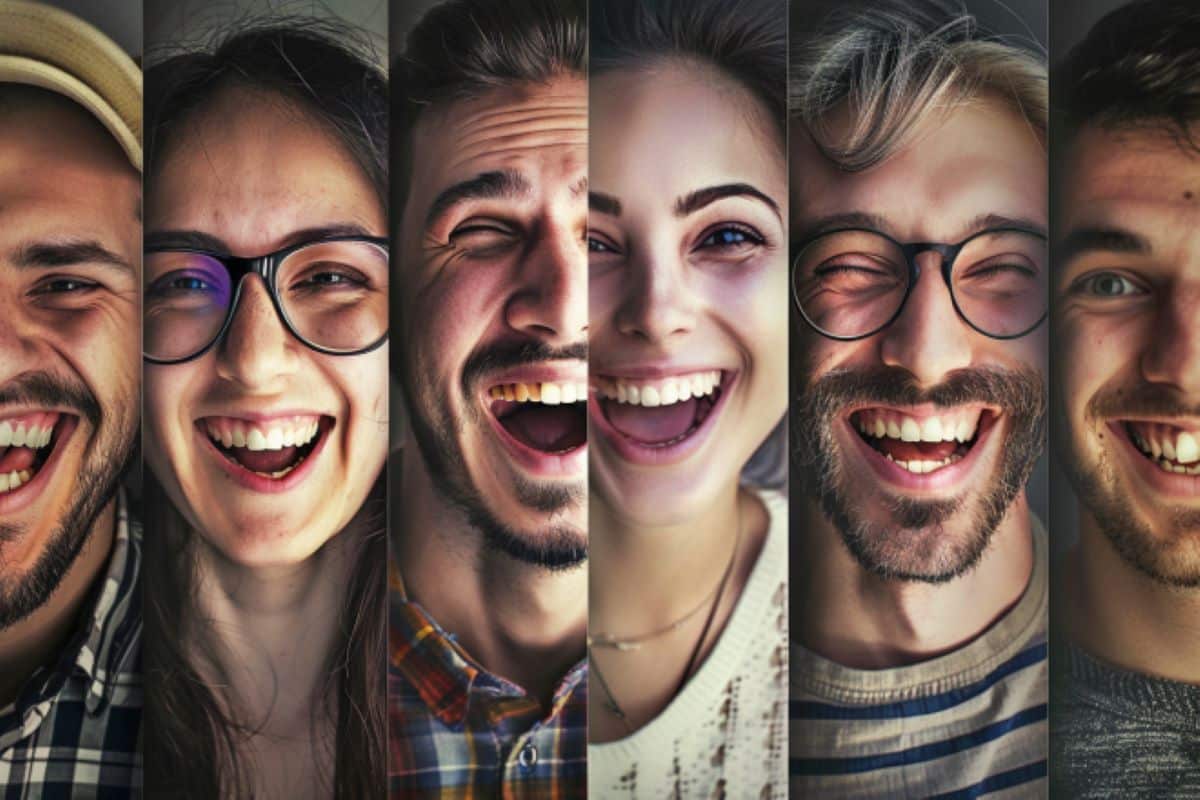Resume: Humans may have evolved complex facial expressions to enhance social bonding. Analyzing more than 1,500 natural conversations, the study found that expressive individuals were more liked and better at achieving social goals.
Expressive participants were easier to read and more successful in conflict negotiations. This suggests that facial expressiveness plays a crucial role in human social interactions and relationship building.
Key facts:
- Expressive individuals are more liked and better at achieving social goals.
- Research analyzed more than 1,500 natural conversations to assess facial expression.
- Findings suggest that complex facial expressions help people build stronger social bonds.
Source: Nottingham Trent University
Analysis of more than 1,500 natural conversations suggests that humans may have developed more complex facial muscle movements to help us bond with each other.
In the first part of the study, researchers posed as participants in semi-structured video calls with 52 people to capture natural reactions and expressions during various everyday scenarios.
The conversations were intended to cover a range of behaviors including listening, humor, shame and conflict. To test the ability to suppress facial expressions, participants were also asked to keep their faces still while their partner tried to move them.
The same individuals later recorded short video clips of their faces as they attempted to achieve social goals such as looking friendly, appearing threatening, and disagreeing without being disliked.
More than 170 people were then shown clips from a selection of the video calls and recordings and asked to rate the emotions and expressions conveyed to see how ‘readable’ the participant was and how likable they were.
Each participant’s facial expressiveness was calculated using FACS (Facial Action Coding System), a method for measuring facial muscle activity.
To test the findings on a larger scale, the researchers conducted a follow-up analysis of unscripted video calls between 1,456 strangers from an existing data set, where conversation partners rated how much they liked each other.
The likeability ratings were analyzed in relation to the FACS results and other recognized measures, and the scientists found that expressive participants were more liked, both by independent raters and by their conversation partner.
They also appeared to be easier to read and better able to adjust their facial behavior to achieve social goals.
In the conflict scenario where participants were offered a bad deal in terms of reward for the study, those who were both agreeable and expressive in their negotiations appeared to achieve a better outcome.
Dr. Eithne Kavanagh, research fellow and lead author of the study at NTU School of Social Sciences, said: “This is the first large-scale study of facial expression in real-world interactions.
“Our evidence shows that facial expression is linked to positive social outcomes. It suggests that more expressive people are more successful at attracting social partners and building relationships. It can also be important in resolving conflicts.”
The work is part of a project funded by the European Research Council led by NTU professor Bridget Waller. Individual Differences in Facial Expressiveness: Social Function, Facial Anatomy and Evolutionary Origins (FACEDIFF) is an interdisciplinary project investigating the evolution of facial expression and how this results in benefits or costs in an individual’s social engagement.
Professor Waller said: “This research is evolutionarily important because it may explain why humans have evolved more complex facial expressions than any other species – helping us create stronger bonds and better navigate the social world.”
About this social and evolutionary neuroscience research news
Author: Helen Breese
Source: Nottingham Trent University
Contact: Helen Breese – Nottingham Trent University
Image: The image is credited to Neuroscience News
Original research: Open access.
“Being Facely Expressive is Socially Beneficial” by Eithne Kavanagh et al. Scientific reports
Abstract
Being facially expressive is socially beneficial
Individuals vary in the way they move their faces in everyday social interactions. In a first large-scale study, we measured variation in dynamic facial behavior during social interaction and examined dyadic outcomes and impression formation.
In Study 1, we recorded semi-structured video calls with 52 participants who interacted with a confederate in various everyday contexts.
Video clips were rated by 176 independent participants. In Study 2, we examined video calls from 1315 participants engaged in unstructured video call interactions.
Indices of facial expressiveness were extracted using automated Facial Action Coding Scheme analysis and measures of personality and partner impressions were obtained by self-report.
Facial expressiveness varied significantly across participants, but little across contexts, social partners, or time.
In Study 1, participants with more facial expression were more likable, friendlier, and more successful at negotiating (as well as more agreeable). Participants who were more facially skilled, more readable, and perceived as more legible were also more liked.
In Study 2, we replicated the findings that facial expressiveness was associated with social partner agreeableness and liking, and additionally found that it was associated with extraversion and neuroticism.
Findings suggest that facial behavior is a stable individual difference that confers social benefits, indicating an affiliative, adaptive function.
